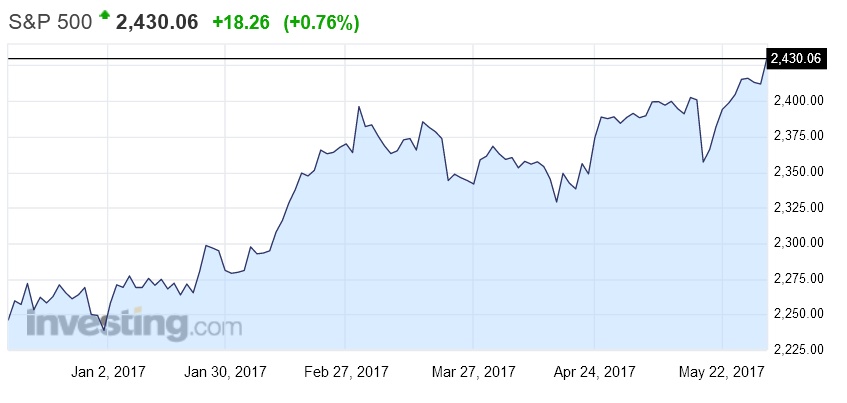From Bloomberg Technology
The financial world has been obsessed lately with debating whether we’re in a different sort of tech bubble, this time among public companies. One stock market strategist recently warned of “tech mania.”
The talk about tech stock froth is based on three interrelated facts: The performance of the U.S. stock market is more dependent on technology companies than any time in more than 15 years. Investors are willing to pay more to own these shares. And they’re crowded mostly into the same handful of big tech companies such as Amazon and Google parent company Alphabet.
Putting those data points together, some market watchers are worried that what has gone up in tech must inevitably come down — and take the whole ebullient stock market down with it.
It’s easy to understand why the finance world can’t stop talking about technology stocks. In the S&P 500 index, the sector accounts for about one quarter of the total market value of the equity benchmark. That is the largest share since 2001, according to Bloomberg data. (It’s worth noting that the S&P 500 doesn’t classify Amazon as a tech company, which is nuts. If the e-commerce giant took its rightful place, even more of the index would be tied to technology.)
Plus, money is pouring into the sector at a rate not seen in 15 years, according to research from Bank of America Merrill Lynch. And while investors aren’t paying stratospheric prices, as they did in the late 90s dot-com bubble, values of a broad collection of tech companies relative to their profits are higher than they have been since early 2004, Pavilion Global Markets calculated last week.
When you start mentioning things that haven’t happened to tech stocks since the early 2000s, you know we are living in odd times.
Every time there is tech froth, people will argue why this is or isn’t different than 1999. This isn’t 1999. But that doesn’t necessarily mean the exploding value of companies such as Apple, Netflix, Nvidia and Amazon is sustainable. I won’t try to predict the future, but the debate surely shows the outsized power of tech firms to drive global growth and equity markets.
Bubble talk isn’t likely to go away. Apple in May became the first U.S. company to top $800 billion in the total value of its stock. Now there’s a race to become the first company to sustain $1 trillion or more in market capitalization. Will it be Apple, or maybe Alphabet or Amazon? No non-technology companies, apart from Saudi Arabia’s mega government oil company, have a shot at the moment.

